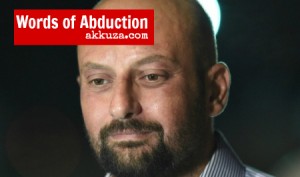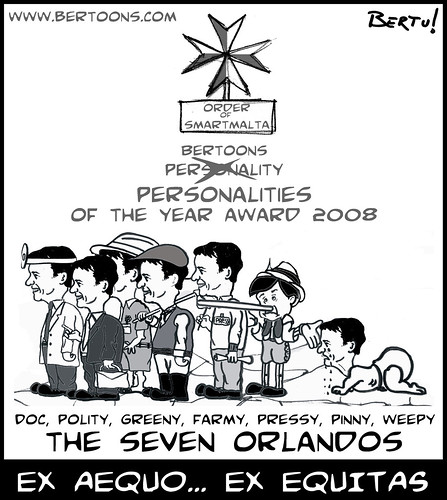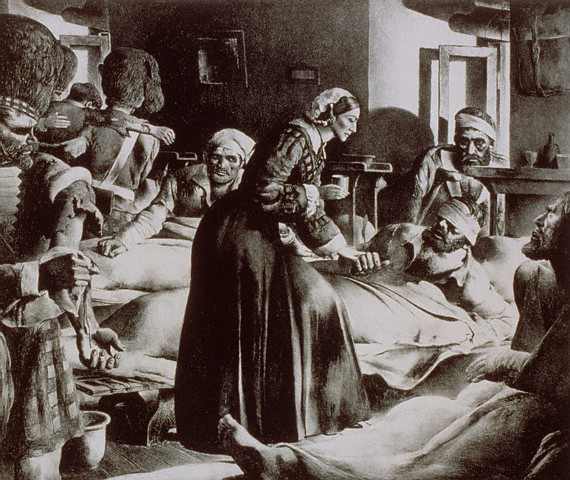 What is predicted to be Malta’s hottest August for years has begun under the sign of Martin Galea and the images of his post-abduction and freedom interview. The story of the abduction itself should have turned out to be quite a straightforward one of abduction and rescue yet Muscat’s government have managed to turn this into another web of fishy explanations, hidden motives and bungled communications – to say the least.
What is predicted to be Malta’s hottest August for years has begun under the sign of Martin Galea and the images of his post-abduction and freedom interview. The story of the abduction itself should have turned out to be quite a straightforward one of abduction and rescue yet Muscat’s government have managed to turn this into another web of fishy explanations, hidden motives and bungled communications – to say the least.
Context
Context, a lot of it, is required. This is Libya following the rekindling of what Western media describe as tribal rivalries. Not too long before the conflagration the government of Malta was busy signing Memoranda of Understanding with whoever was sitting in the shaky seat of power in Tripoli at the time. Any suggestion to the government of Malta that the Libyan situation was not at all safe and that it was about to explode once again into the warring factions we had seen in the post-Colonel scenario would be shot down with the usual arrogant panache that has become such a trademark Labour method in the domain of communications.
In mid-July Malta’s foreign Minister insisted that the situation in Libya was “not very serious” and that there was no need to evacuate Maltese citizens. It would soon become evident that notwithstanding our proximity to the Libyan realities and all the talk of our common history and heritage and friendship (all is well when you are signing an agreement for cheaper fuel) we apparently had no bloody clue what was going on. While other states withdrew their embassies (by July 27 even the US evacuated its Tripoli embassy) we were busy playing musical chairs with out politically appointed ambassador (aren’t they all) to-ing and fro-ing like a headless chicken on crack.
It is important to follow the trail of government speak in this story – especially when weighing who its real interlocutor is. When the government does seem to want to address the media (not only the selected media as on the China trip), it seems to have a second interlocutor in mind – one to whom it is intent on delivering a pleasant message.
Step back again to the days prior to the return to battle on Libyan territory. A few other incidents stick out like a sore thumb. First we had the mysterious Libyan being provided Malta state security in a Saint Paul’s Bay flat. Following some probing prompted by early questions raised on Caruana Galizia’s blog, the government was forced to comment on whether or not a Libyan national was being provided with state-funded security. It turned out that Libya’s former Deputy PM Sadiq Abdulkarim had fled to Malta. No confirmation was forthcoming from the government as to whether or not this was the same person being provided security. They had this to say:
Libya’s Deputy Prime Minister Sadiq Abdulkarim is living in Malta, this newspaper has learnt.A government spokesman would not confirm or deny it, simply saying it “would not comment on matters of national security”.Mr Abdulkarim, who was also Libya’s deputy PM while Ali Zeidan was prime minister, is living under heavily armed guard on the island. […]
Over the weekend, the government was quick to deny media speculation that Mr Zeidan was living in Malta. Government spokesman Carmelo Abela reiterated during a press conference on Tuesday that the man seen under heavy escort in St Paul’s Bay was not the former Libyan premier but said he could not give further details because of national security.
Eight days after the above quoted report, the Times of Malta reported that Zeidan and Abdulkarim had returned to Libya (June 20th). Mr Zeidan returned to the city of Beida where he “made an attempt to reclaim his premiership”. It was Garibaldi all over again. A short rest in Malta before returning to retake the country – or so they thought. As for the Maltese government it stood by its “national security” dictate.
A second interesting development before the fighting began again in Libya was the accusation that Malta or some Maltese were involved in the smuggling of fuel from Libya.Tellingly this allegation surfaced on June 18th in the Maltese press – following its first appearance in a Reuters report. Here’s the Times:
Meetings are being held between senior security personnel in Malta and Libya to verify allegations of fuel smuggling from Libya to Malta and take all decisions necessary to curb such activities, the Foreign Ministry said.
It said the latest developments would also be discussed between Minister George Vella and his Libyan counterpart later today.
The ministry was reacting to a Reuters report that large amounts of fuel were being smuggled from Libya to Malta – even as angry motorists queued in Tripoli and the state oil firm struggled to deliver due to a lack of security at petrol stations
“This phenomena is a threat to Libya and affects national security,” the government said in a statement after Prime Minister Abdullah al-Thinni met Malta’s ambassador.
This time it was Libya’s government ranting away about “national security”. Curiously these events take place on June 18th, two days before Zeidan and Abdulkarim leave Malta to “reclaim the premiership”. On June 20th we have Libyan PM Abdullah Al-Thinni meeting the Maltese ambassador to voice his concerns while Foreign Minister George Vella met his counterpart in Al-Thinni’s government. There is something very confusing about the Maltese government’s dealing with Libya as a whole. On the one hand it is presumably (strong evidence backs this presumption) providing safe harbour to the deputy of the claimant to the “throne” in Tripoli but on the other hand it is also negotiating with (and therefore clearly recognising) the man occupying the coveted “throne”.
Of course you are entitled to think that in this way the Maltese government is on “friendly terms” with all sides in the fractious break up of Libya. There is a high probability that the Maltese government is hedging its bets and hoping that whichever side is victorious then it can quickly cosy up and resume its agreements regarding oil procurement and immigration problem solving. Aside from the moral implications of this kind of foreign policy, one question remains to be answered? What weight does the Maltese government carry when push comes to shove in Libyan matters?
There’s one final piece of the context puzzle before moving on. This time we go back to May 2014 – a month before the events began to precipitate. Consul Maria Farrugia is called back to Malta on allegations of VISA fraud. Another piece of the network of foreign representatives being replaced by Taghna Lkoll Government appointees crumbles. This time, rather than simply recalling the diplomat we have charges of VISA fraud. Whether such allegations turn out to be substantiated or not is another story – what is important here is that our man in Tripoli is another political appointee who, as it turns out, becomes useless in the moment of need. Farrugia would be recalled at the time of Galea’s abduction and – if you were to take the abductees word for it – would be fundamental for his release.
This is not an abduction
So there you have it. This is the context in which we can better see the news behind the abduction of Martin Galea. Galea was abducted on Thursday July 17th while working for private company NAGECO as a health and Safety advisor. The government of Malta had to wait for his release, his return to Malta, his medical examination and finally for the incontrovertible truth explained in a TMI video interview before it finally conceded that this was an abduction. From the 17th of July till the end of the month, the governments’ handling of the issue begs more questions than it provides answers. With the above context in mind the questions that can and should be asked are the following:
Once the government was apprised of the fact that Martin Galea was missing and possibly abducted how was this information processed and prioritised? We are told that the government was informed of the abduction on Sunday 20th (Joseph Muscat statement in Parliament) and that it started working with the police and diplomatic service to contact the abductors. As late as July 30th statements by Civil Service head Martin Cutajar still insisted that the government never used the word “abduction” – adding that “it was the media who called it an abduction.
It was not just Cutajar, OPM Communications Head Kurt Farrugia also added that “the exact sequence of events was never clear, and the government never had direct contact with whoever was holding Mr Galea”. In an interview with MaltaToday, a Libyan militia leader (Ayman Al Madani) also denied that Mr Galea was ever abducted. Saying that he played a role in securing Galea’s release he insisted that the Maltese national was not abducted, but taken in by a Warshafana militia when fighting broke out on the road he was travelling on.
Al Maydani has a Libyan contact in Malta – Khaled Ebrahim Ben Nasan who had asked him to enquire about Galea’s disappearance. Ben Nasan seems to have been brought into the picture by Malta’s ambassador to Libya Mannie Galea who, according to the MT interview ” asked him to intervene in the rescue of Galea on midnight of Saturday 26 July, the day after news broke that Galea had disappeared.” This last statement is interesting because it shows a lapse of 6 days between when the government knew of the abduction (20th July) and when Ambassador Mannie Galea contacted possible intermediaries. Did Ambassador Mannie Galea only get to know on the 26th July? It does not sound reasonable.
Also, what is all this concern about toning down the “abduction” and describing it as a case of being secluded for his own security? Which counterparts in Libya are being accomodated by this version of events? Does this in any way have anything to do with the hedging of bets with the internal situation in Libya? If a militia had indeed abducted Martin Galea was somebody making sure that no toes were stepped upon and no feathers were ruffled in case this militia transforms into a “government counterpart”? Whose security was being given priority?
Much has also been made of Ambassador Galea’s absence from the scene – he was nowhere to be seen at the victorious set-up at Luqa Airport upon Martin Galea’s return to Malta. Instead we heard Martin Galea say that he owed his life to Marisa Farrugia, the supposedly disgraced consul who had been whipped back in action by the government to bring back the person who had (according to the official line) not been abducted by one of the militias vying for power in civil war torn Libya. Complicated?
There are other questions of course. The government, through its spokesman Cutajar, insisted as late as the 30th of July that “‘competent authorities’ are still putting together the circumstances of what happened to oil worker Martin Galea who was held by Libyan militias for 12 days and brought back to Malta on Monday evening.” Cutajar also stated that Martin Galea “was given different versions of who the group who took him were”. Meanwhile Kurt Farrugia confirmed Cutajar’s statement adding:
“the government never said it was an abduction. “We chose our words carefully to protect Galea’s life especially when we didn’t have the full picture of the situation. We were still evaluating the situation, and the word ‘abduction’ was used by the media. We always made it clear that the government never had direct contact with whoever took him”. (MaltaToday, 30 July)
As I mentioned earlier it would take Martin Galea’s Independent interviews to get the government to ‘admit’ that it was an abduction. There are more telling points in Farrugia’s statements. There is the admission that the government was rarely on top of the situation. Notwithstanding that this was a country with whom an MOU had been signed earlier that month and that this was country where there was ‘no reason to worry’, the government proved to be rather inept at reacting properly on the ground.
Why not use the term abduction? For whose safety exactly? How exactly does an abduction get worse by calling it an abduction? One possible explanation is that the government wanted to ‘legitimise’ the abductors. A line similar to that sold by militia leader Al Madani would explain this. Theirs was not an abduction but Galea was simply kept aside for his own security. Of course none of this makes sense once you hear about Galea’s ordeal but for a government that puts much weight in the power of persuasion through words, not calling an abduction an abduction must have made a lot of sense.
Also, on the 30th July, the OPM Communications Chief confirms that “the government never made contact with whoever took him (Galea)”. Interesting. So essentially we have clear evidence that notwithstanding all the fanfare with Muscat and Manuel Mallia at Luqa airport, the government had little or no say in negotiating the release of the abductee Galea. So how and why was he released? How are we to interpret his words that it is to Marisa Farrugia that he owes his life?
Were there parallel efforts by different entities all doing their damned best to liberate a person who for all official intents and purposes had not really been abducted? There is evidently much that we are not being told. Muscat’s government has tried to minimise the escalation of troubles in Libya and it is evident that it has much at stake (as a party as much as a government) in the outcome of the troubles. Galea’s abduction was a major inconvenience for the official line that had hitherto attempted to understate the extent of upheaval happening to the south of our Republic.
A network of interests, dues and counter-dues somehow keeps trying to surface while Muscat’s government seems more and more inept and unprepared to take a clear line vis-a-vis Libya. More importantly it becomes more and more evident that the main interest for Muscat’s government when dealing with Libya is not the much vaunted “national interest” but rather a web of party and individual commitments and investments.
One last evident victim that comes out battered from such an experience (notwithstanding what increasingly seems to be the fortuitous liberation of Galea) is the whole branch of the foreign ministry and network of diplomats. When push comes to shove the real damage of privileging political appointments over meritocratic and technocratic employment of trained personnel is dangerously exposed in such situations.
In such situations, Muscat’s hypnotic hold over popular thought using his “Magritte technique” and calling something what it is not (or denying something is what it is) begins to show huge cracks and signs of breaking.
Ceci n’est pas un enlèvement!
(This is not an abduction).



